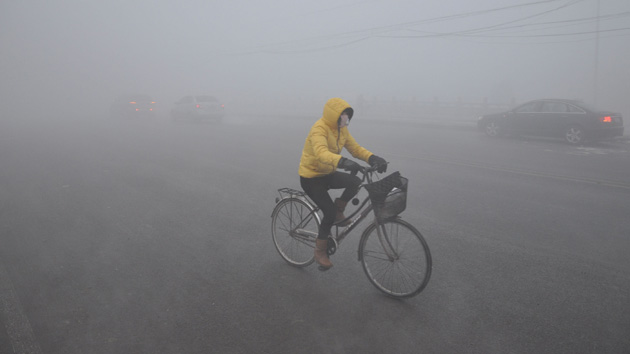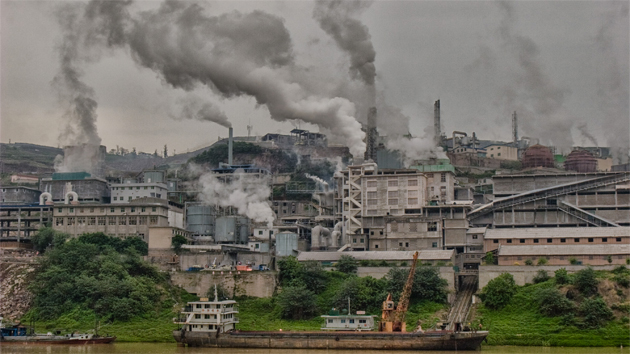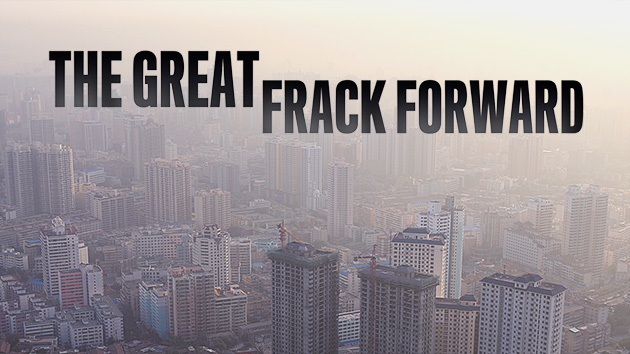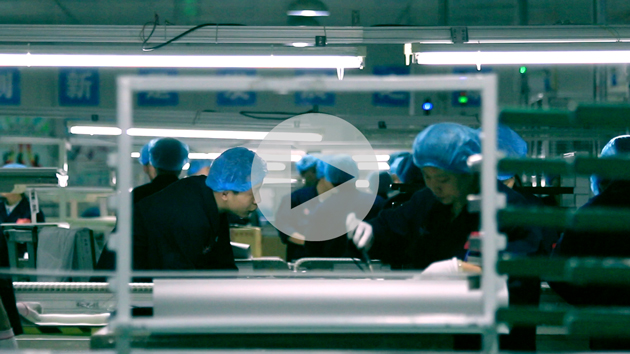
A cyclist rides through heavy smog in Handan, in China's Hebei province, in 2013. Handan ranks as the fifth dirtiest city in terms of air pollution, according to new data released by Greenpeace.Hao Qunying/Imaginechina via AP
Looking at China’s recent surge of toxic smog, it’s clear the nation’s air pollution crisis isn’t going away any time soon. Now we have some fresh statistics that reveal the extent of the problem.
New rankings released today by Greenpeace reveal that 90 percent of Chinese cities that report their air pollution levels are failing to meet China’s own national standards—the latest indication of the monumental challenges facing the Chinese government in cleaning up the air breathed by tens of millions of people. It’s a worry that has become a political thorn in the side of the Communist Party, intent on maintaining its power in the face of growing public restlessness over environmental degradation.
The analysis comes at a time when large swaths of the country suffer under thick layers of toxic smog—usually worse in winter, as demand for central heating increases coal-fired power production. The smog persists despite the government’s self-declared “war on pollution” in 2014, which includes measures to curtail coal use in big cities like Beijing, and limit heavy industries.
The statistics, derived from China’s Ministry of Environmental Protection, measure a city’s yearly average concentration of PM2.5, shorthand for the toxic airborne particles from coal burning and industrial exhaust. In 2014, just 18 cities out of a total 190 met what’s known as China’s “Class II” standard of 35 micrograms per cubic meter of air, considered within the healthy range. (The US standard is about half that number). A quarter of the cities recorded levels more than double the national standard.
The most polluted places are among the most populous. Of the 10 cities with the worst PM2.5 air pollution, seven of them were in Hebei, the coal belt province neighboring Beijing. In the top five worst offenders is heavy industry hub Baoding (ironically home to the world’s largest solar manufacturing plant, which is trying to wean the country off coal) and the notoriously polluted Shijiazhuang, where, last year a local man attempted to sue the local government over air pollution. Both cities recorded average levels more than 3.6 times China’s limit, which came into effect in 2012. Life spans in China’s north, where coal plants are ubiquitous, are thought to be five years shorter than those in the south of the country, according to a 2013 study.
Average rates of pollution, of course, don’t provide a clear picture of the off-the-charts spikes experienced regularly across major cities, such as in mid-January this year, when concentration of PM2.5 exceeded 500, according to the US Embassy in Beijing, or in 2013, when some instruments recorded levels of over 1000 in the northern city of Harbin.
Greenpeace’s latest campaign is accompanied by the release of a short film by famous Chinese filmmaker Jia Zhangke, the critically acclaimed director of 2013’s “A Touch of Sin“. The film shows scenes from daily life in China, under the pall of smog:













